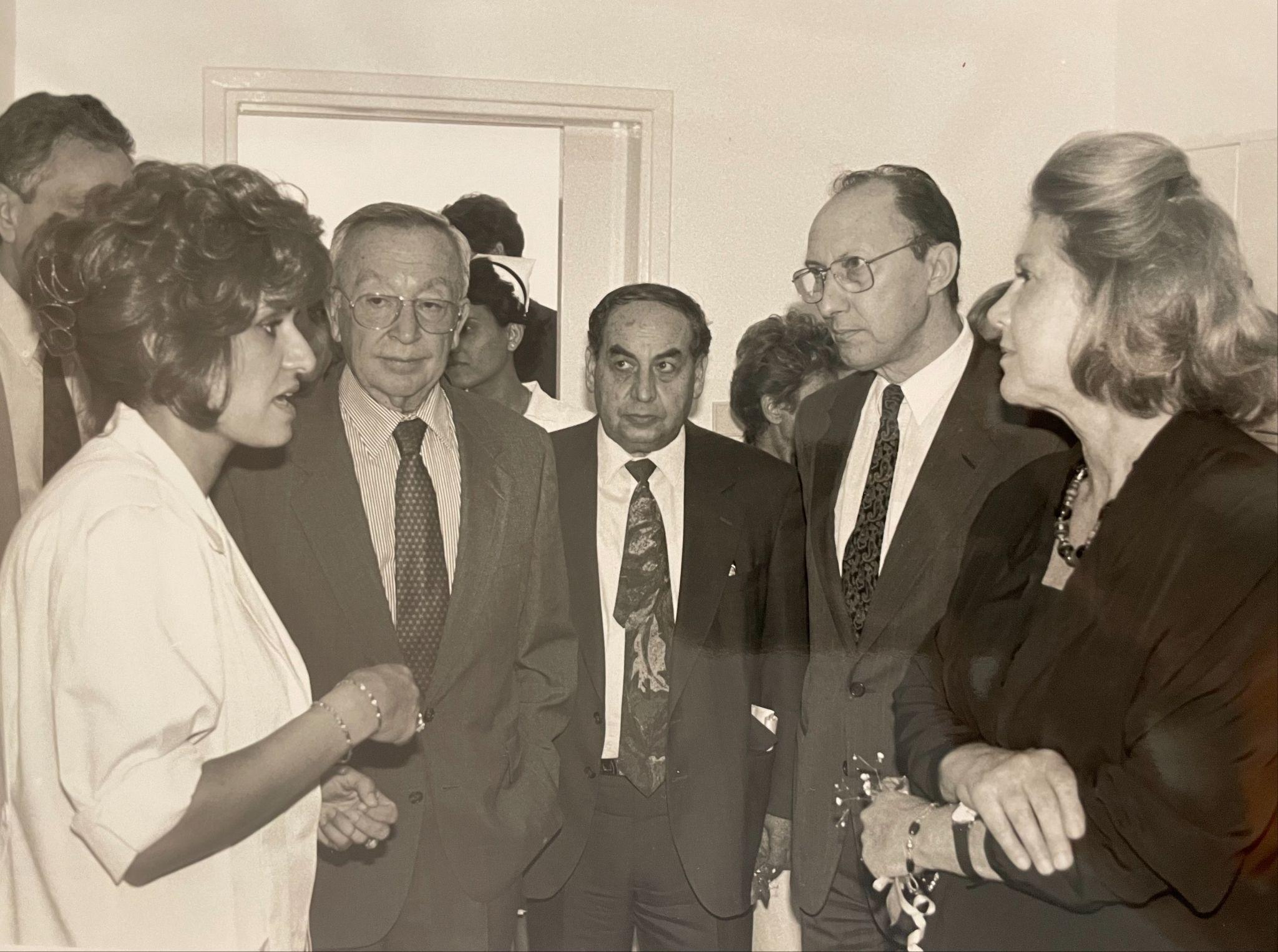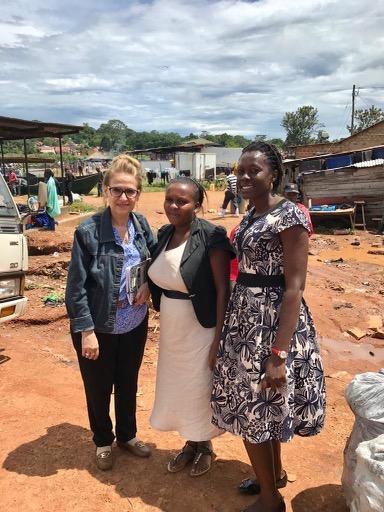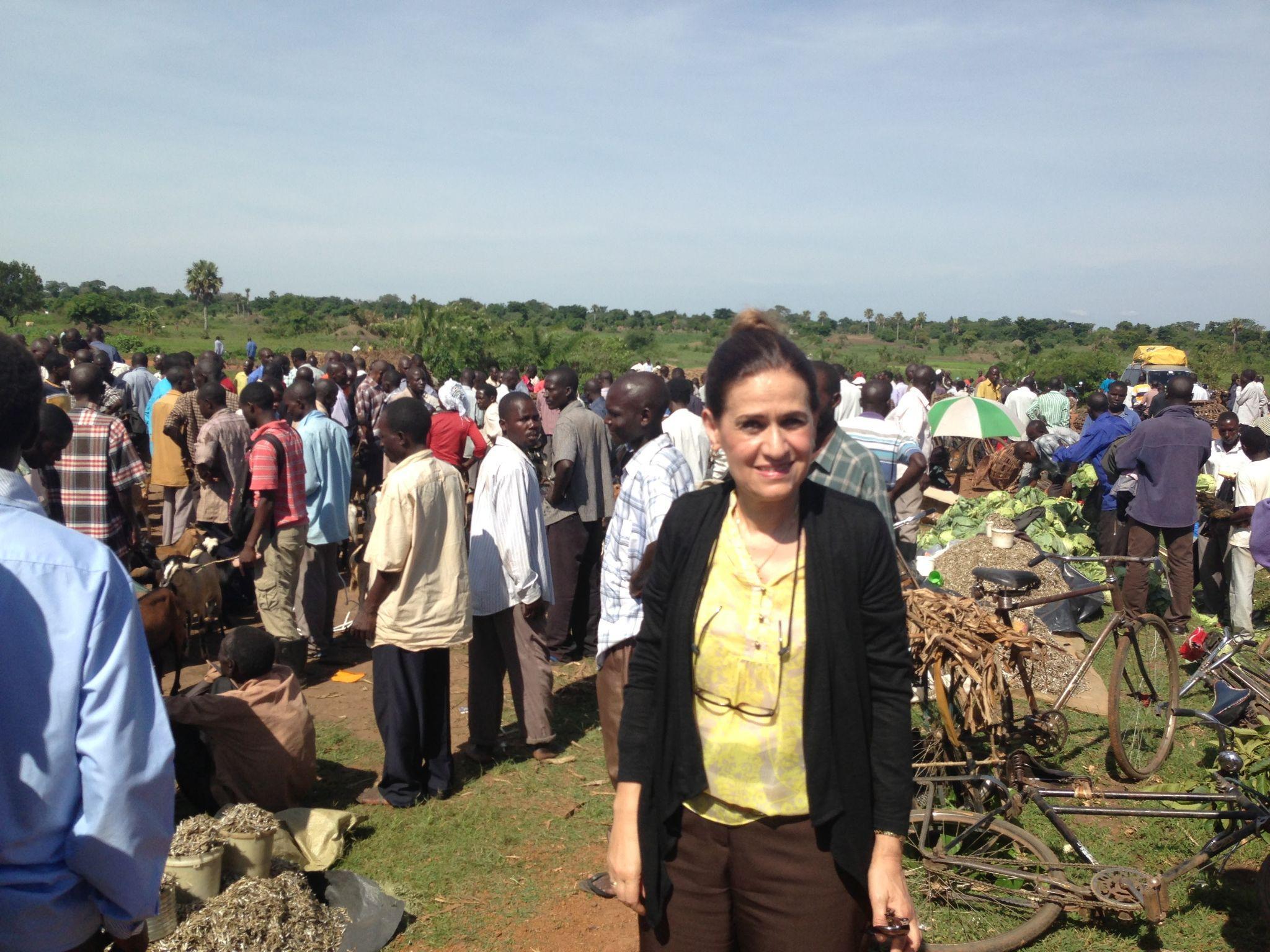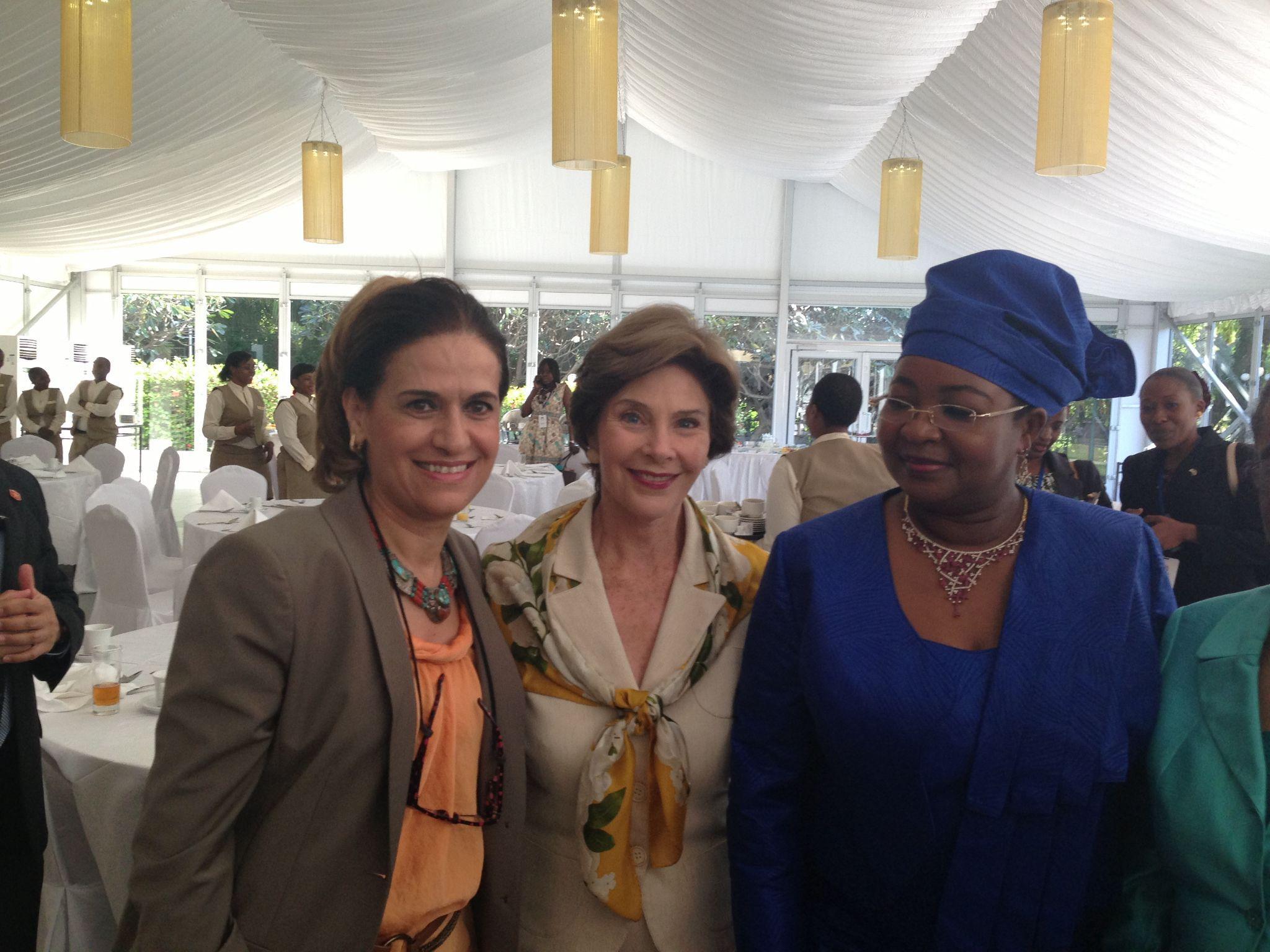By Liz Hall, WI-HER Communications Manager
Children played in open wastewater that ran through a refugee camp where Dr. Taroub Faramand worked as a physician in 1988. No matter how many times she treated children for diarrhea, she knew they’d fall sick until the problem was fixed. But that required resources, including money, the refugees did not have. A better solution, Dr. Faramand realized, was to raise money to give the refugees the materials and tools they needed so the community could work together to fix the underlying problem affecting their children’s health.

In 1994, Dr. Faramand explained the integrated health services model she started at a remodeled health center serving refugees in Palestine. The photo includes senior officials from the UNRWA who helped facilitate the grant that enabled Dr. Faramand to bring the innovative model to the health center.
Solutions, Dr. Faramand realized decades ago, must come from local communities themselves. Even well-funded interventions often fail to create long-lasting change when local actors, including people who may be isolated or marginalized, are not involved in designing and implementing them. Through working in refugee camps, Dr. Faramand saw how inequities impacted health and other outcomes.
“Health is about more than services offered within a clinic,” said Dr. Faramand, founder and president of WI-HER. “I learned how gender, social, and political issues affect the patients I served. I learned how individuals are impacted when systems and solutions are fragmented and when they’re not involved in the activity design.”
She learned firsthand that locally-led development is and should be all about removing barriers, enabling people to exercise their power within, and trusting people to know what is best for their communities.
WI-HER’s Founding
After working as a clinician for almost three decades and leading global health projects, Dr. Faramand was determined to create innovative ways to collaborate with people who are often excluded or not reached. She knew that to integrate services and strengthen systems, the global development community needed to advance a multisectoral approach that put local actors in the driver’s seat of change. With this mission, Dr. Faramand established WI-HER in 2011.
Growing A Diverse Team Rooted in Local Challenges
Dr. Faramand grew WI-HER by building a multidisciplinary team, recruiting experts with diverse backgrounds and lived experiences, who live and work in project countries. Today, WI-HER’s 60+ staff and consultants live around the world. Their expertise, including in technical implementation and capacity strengthening, complements their knowledge of working with local actors to address local challenges.

Dr. Faramand (left) with Harriet Komujuni (middle) and an individual from the county where the mill was built.
Take for example Harriet Komujuni, a WI-HER Senior Technical Advisor. In the early days of WI-HER, Ms. Komujuni and Dr. Faramand met with a community that identified a food mill as what they needed to help their children thrive. Through investment and capacity building, WI-HER’s Uganda team assisted the community in creating a sustainable plan to secure and maintain the food mill.
Dr. Faramand also fostered a work culture that emphasizes the importance of mentorship—creating an environment of trust and respect and a workplace that encourages collaboration and innovation, even when working remotely. As Ms. Komujuni said, “WI-HER has been a catalyst for my professional growth, a source of stability, a hub for innovation, and a community that I am proud to be a part of.”
Creating an innovation hub with staff worldwide was challenging. Still, with the passion and expertise of WI-HER’s experts, WI-HER achieved results. After all, no one understands a country’s needs better than those who live there.
Today, past WI-HER employees hold leadership positions, including as directors of USAID offices, where they continue to spearhead locally-led development initiatives.
Advancing Inclusive Development

Early in her career, Dr. Faramand realized the importance of directly involving local actors in designing and implementing solutions. In this photo, Dr. Faramand was wondering why was the clinic empty on the day allocated to serve men? She found out they were all at the market on a Wednesday – the only market day in this community!
Dr. Faramand also ensured locally-led change was at the center of WI-HER’s work from the beginning by conceiving of a methodology that fosters locally-led decision-making and improves desired outcomes.
This participatory methodology, known as iDARE, focuses on addressing the root cause of how and why people make decisions. “We support local actors to identify and create local, targeted, customized, and context-specific solutions to remove barriers and address the factors affecting outcomes,” said Dr. Faramand.
While WI-HER initially focused on health, its application to other areas quickly became apparent. iDARE is used across communities, organizations, and governments, working with influencers and local stakeholders to create change and outcome improvements in areas like health, climate resilience, food systems, energy, leadership, and inclusive development.
iDARE works well in locally-led development because it collects context-specific data to inform solution design and capacity strengthening initiatives, enabling stakeholders to use and assess data for continuous improvement. The iDARE integrated approach leverages and strengthens the resilience of people and systems, leading to more sustainable change.
Think of iDARE as the method that operationalizes inclusivity in program design and implementation. When intersectionality and inequities are considered at the outset of a program design, people get what they need to survive and thrive.
This inclusive mindset has underpinned WI-HER’s work since its founding and, with continued learning and real-time adaptations, continues to drive our results forward.
***
Additional quotes:

Dr. Taroub Harb Faramand with former First Lady Barbara Bush and the First Lady of Tanzania at a conference discussing equity. Photo taken in 2014.
“WI-HER is an organization that means a lot to me regarding my professional journey and in terms of supporting the people we serve in different countries. I met Dr. Taroub Harb Faramand more than 10 years ago, when we both worked on the ASSIST Project. Dr. Faramand had come to Tanzania to facilitate a session on Gender and its integration into the project. By then, the concept of Gender within different programs was new to me and to my colleagues at ASSIST Tanzania. I particularly remember one initiative where we were trained to track sex-disaggregated data within different regional activities in Tanzania. Dr. Faramand is a leader and a mentor to me and many others. She fights for the marginalized as she promotes equity in action. She understands the needs of the people she serves and the people she works with.” – Dr. Stella Mwita, Regional Advisor, Africa
“The organizational mission, vision, and values [of WI-HER] resonated with me, especially those centered around elevating voices and power of individuals and communities, including the most marginalized. I also appreciate the focus on compassion and empathy, which I believe are key to building and nurturing trust-based relationships and partnerships.” – Eka Imerlishvili, Senior Program Manager.





